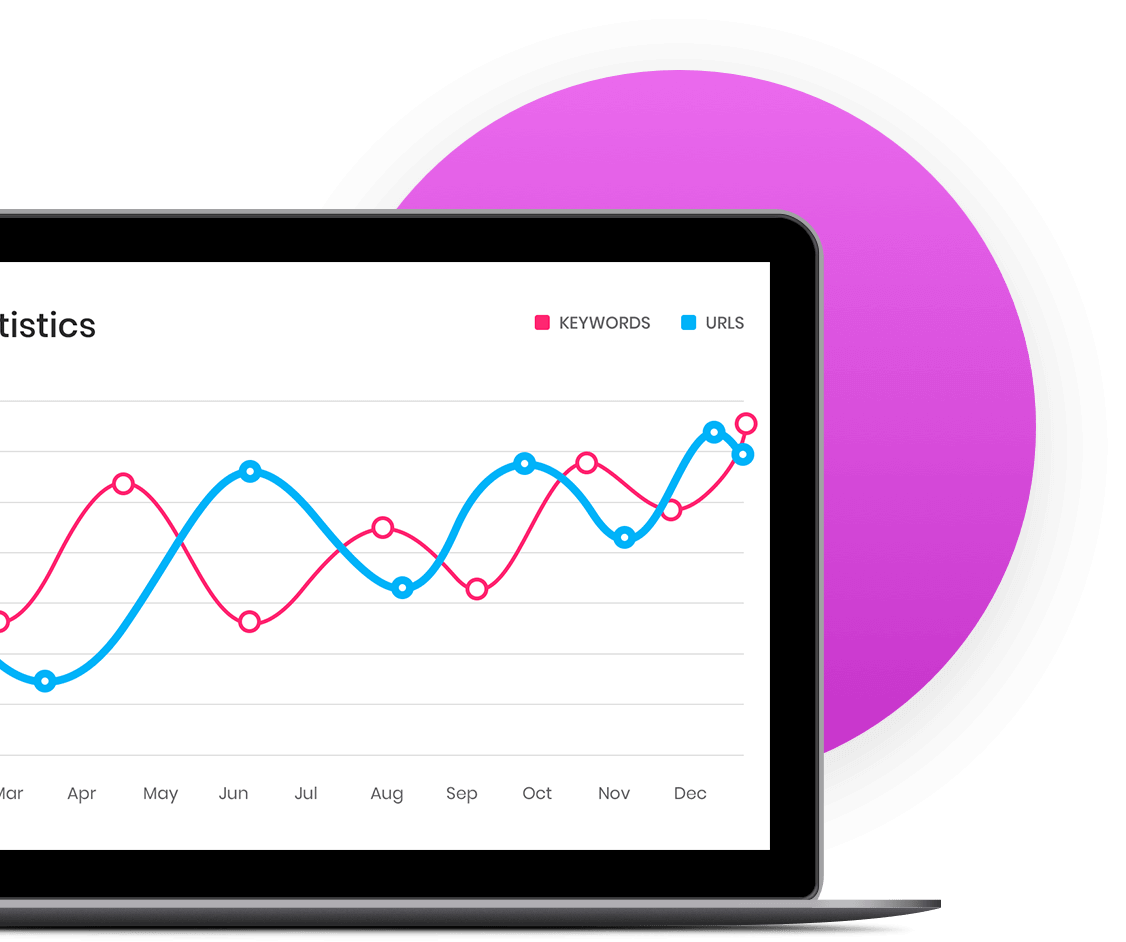In today’s competitive business landscape, selecting the right Customer Relationship Management (CRM) software stands as a critical decision for sustainable growth. A well-implemented CRM system serves as the backbone of successful customer interactions, sales processes, and business operations.
The impact of CRM software on business growth can be seen through:
- Enhanced customer retention rates
- Streamlined sales processes
- Data-driven decision making
- Improved team collaboration
- Automated workflow management
When evaluating CRM solutions, specific features directly influence your business’s growth trajectory. These essential capabilities include robust contact management, automated marketing tools, and comprehensive analytics. The right combination of features transforms your CRM from a simple database into a powerful growth engine that drives revenue, strengthens customer relationships, and optimises operational efficiency.
Understanding these key features helps businesses make informed decisions when selecting a CRM system that aligns with their growth objectives and operational requirements. However, it’s not just about having the right tools; it’s also about leveraging them effectively. For instance, integrating SEO strategies into your CRM can significantly enhance your marketing efforts by improving online visibility and attracting more potential customers.
Understanding the Role of CRM Software in Business Growth
CRM software serves as a central hub for managing customer relationships, driving sales efficiency, and enhancing team performance. Let’s examine these critical aspects:
1. Enhanced Customer Interactions
A robust CRM system creates personalised customer experiences by maintaining detailed interaction histories. Sales teams gain instant access to:
- Previous purchase patterns
- Communication preferences
- Support ticket history
- Customer feedback and pain points
This comprehensive view enables businesses to anticipate customer needs and deliver tailored solutions at the right moment.
2. Streamlined Sales Processes
Modern CRM platforms transform traditional sales approaches through:
- Automated lead scoring and qualification
- Standardised sales workflows
- Real-time pipeline visibility
- Simplified quote generation
- Automated follow-up reminders
These features reduce manual tasks, minimise errors, and accelerate the sales cycle from prospect to close.
3. Maximised Team Productivity
CRM systems boost operational efficiency by:
- Centralising customer data and eliminating information silos
- Automating routine administrative tasks
- Enabling remote collaboration through cloud access
- Providing mobile functionality for field sales teams
- Standardising processes across departments
Teams can focus on high-value activities rather than administrative duties, leading to improved performance metrics and increased revenue generation.
The integration of these elements creates a synergistic effect, where improved customer understanding drives better sales outcomes, and enhanced team productivity leads to superior customer service delivery. To fully leverage the potential of CRM software, businesses may benefit from seeking professional guidance from a CRM consultant, who can streamline processes, boost customer satisfaction, and increase sales.
Key Features to Look for in a CRM System for Business Growth
Selecting the right CRM system requires careful consideration of essential features that directly impact business growth. Here are five critical components to evaluate when choosing your CRM solution:
1. Contact Management
A robust contact management system serves as the backbone of any effective CRM solution. The ideal system should:
- Create detailed customer profiles with customisable fields
- Track interaction history across multiple channels
- Enable advanced segmentation based on demographics, behaviour, and preferences
- Support automated data enrichment from social media and other external sources
- Maintain data accuracy through duplicate detection and merging capabilities
2. Workflow Automation
Intelligent workflow automation transforms manual processes into streamlined operations. Key automation capabilities should include:
- Automated lead assignment based on predefined rules
- Task creation and assignment triggers
- Email response handling and follow-up sequences
- Document generation and processing
- Approval workflows for deals and quotations
3. Marketing Automation
Advanced marketing automation tools drive engagement and conversion rates through:
Campaign Management
- Multi-channel campaign creation and execution
- A/B testing capabilities
- Automated lead scoring and qualification
- Personalised content delivery
- Campaign performance tracking
These marketing strategies can be effectively implemented by partnering with a marketing agency that offers expert services in SEO, Google Ads, Web Design, and Email Campaigns.
Lead Nurturing
- Triggered email sequences
- Dynamic content adaptation
- Behaviour-based targeting
- Progressive profiling
4. Customisation and Integration
Your CRM should adapt to your unique business processes through:
- Custom field creation and modification
- Flexible workflow configuration
- API accessibility for third-party integrations
Integration possibilities could include:
- Email marketing platforms such as those offered by an email marketing agency
- Social media management tools
- Accounting software
- Project management systems
- Business intelligence tools
5. Customer Service Tools
Built-in support features enhance customer satisfaction through:
Ticketing System
- Automated ticket routing
- SLA management
- Priority-based queuing
- Resolution tracking
Communication Tools
- Live chat functionality
- Knowledge base integration
- Customer portal access
- Multi-channel support management
These features work together to create a comprehensive system that supports sustainable business growth. The right combination of these tools enables organisations to build stronger customer relationships, increase operational efficiency, and drive revenue growth through improved sales and marketing performance.
In addition, consider leveraging professional services such as a CRM setup service to ensure your system is optimally configured for your business needs. Furthermore, engaging with a PPC agency can significantly enhance your online visibility and lead generation efforts.
Additional Essential Features for Consideration
Beyond the core functionalities, modern CRM systems offer advanced features that can significantly amplify your business growth potential. Let’s explore three essential capabilities that deserve careful consideration during your CRM selection process.
6. Employee Tracking and Task Management
A robust task management system within your CRM creates a structured environment for team collaboration and accountability. Key benefits include:
- Real-time visibility of employee activities and progress
- Automated task assignments based on predefined triggers
- Performance metrics tracking for individual team members
- Collaborative workspaces for project-specific communications
- Deadline management and priority setting capabilities
7. Social Media Monitoring
Social media integration transforms your CRM into a powerful social listening tool. This feature enables:
- Brand mention tracking across multiple platforms
- Sentiment analysis of customer feedback
- Identification of brand advocates and influencers
- Direct engagement with customers through social channels
- Social media campaign performance tracking
8. Lead Management
Advanced lead management capabilities ensure no potential customer falls through the cracks. Essential functionalities include:
- Multi-channel lead capture systems
- Lead scoring and qualification frameworks
- Automated lead distribution rules
- Custom lead nurturing workflows
- Lead source attribution tracking
These features work together to create a comprehensive system that supports your team’s efficiency whilst maintaining strong customer relationships. The right combination of these capabilities can transform your CRM from a simple contact database into a powerful growth engine for your business.
When evaluating potential CRM solutions, consider how these features align with your specific business processes and growth objectives. The ideal system should offer flexibility in feature implementation, allowing you to scale functionality as your business needs evolve.
Using Data Analytics for Better Decision-Making with Your Chosen CRM Solution
Real-time data analytics capabilities are a key feature of modern CRM solutions, turning raw data into useful business information. These advanced analytical tools help businesses:
- Track Revenue Metrics
- Sales speed
- Customer acquisition costs
- Customer lifetime value
- Win/loss ratios
- Monitor Customer Behaviour
- Purchase habits
- Product preferences
- Service usage statistics
- Engagement levels
The power of real-time analytics is in its ability to find patterns and unusual events as they happen. Sales managers can see declining performance metrics before they affect revenue. Marketing teams can spot successful campaign elements while it’s still running, allowing for immediate improvement.
Advanced CRM analytics tools offer predictive capabilities through machine learning algorithms. These systems look at past data to predict:
- Future purchasing behaviours
- Customer churn probability
- Product demand cycles
- Resource allocation needs
Custom Analytics Dashboards
Modern CRM platforms allow users to create personalised analytics dashboards, displaying relevant metrics for different roles:
- Sales representatives see their pipeline metrics
- Marketing teams monitor campaign performance
- Customer service tracks response times
- Leadership views company-wide KPIs
This detailed approach to data analysis helps businesses make strategic decisions based on solid evidence instead of guesses. Companies can find market opportunities, improve resource allocation, and develop targeted growth strategies through deep data insights.
Visualising Key Business Insights Using Reporting Tools & Dashboards Within Your Selected CRM System
Effective data visualisation transforms complex business information into actionable insights. Modern CRM reporting tools and customisable dashboards, such as those offered by Looker and Looker Studio, serve as powerful allies in this transformation process.
Key Dashboard Components:
- Sales performance metrics
- Customer engagement levels
- Pipeline status indicators
- Revenue forecasts
- Team productivity measurements
A well-designed CRM dashboard presents these metrics through intuitive visual elements:
- Heat maps
- Pie charts
- Bar graphs
- Line trends
- Progress indicators
The ability to customise dashboards based on specific roles ensures relevant data accessibility across your organisation. Sales representatives might focus on individual performance metrics and pipeline progress, whilst marketing teams track campaign effectiveness and lead generation statistics. Executive leadership can access high-level insights for strategic decision-making.
Advanced Dashboard Features:
- Drill-down capabilities for detailed analysis
- Real-time data updates
- Custom report scheduling
- Mobile accessibility
- Export functionality
These reporting tools enable stakeholders to:
- Identify sales trends
- Monitor team performance
- Track customer satisfaction levels
- Measure campaign effectiveness
- Analyse revenue patterns
The integration of AI-powered analytics enhances dashboard functionality by providing predictive insights and automated anomaly detection. This advanced capability helps organisations spot potential issues before they impact business operations.
Custom reporting templates streamline the creation of standardised reports, saving valuable time whilst maintaining consistency in data presentation. The ability to share dashboards and reports facilitates collaboration and ensures all team members work with the same information set.
Managing Sales Pipelines Effectively Through Your Preferred Choice Of A Suitable Sales Pipeline Management Feature
A robust sales pipeline management feature is essential for generating revenue successfully. Modern CRM solutions offer advanced tools that visually represent pipelines, making complex sales processes easy to understand and act upon.
Key Benefits of Advanced Pipeline Management:
- Visual Deal Tracking: Map your entire sales journey from lead acquisition to closure, identifying opportunities that need immediate attention
- Stage-by-Stage Analysis: Monitor conversion rates between pipeline stages to optimise your sales strategy
- Revenue Forecasting: Generate accurate predictions based on deal values and probability metrics
- Resource Allocation: Direct your sales team’s efforts towards high-priority opportunities
The right pipeline management tool adapts to your unique sales methodology. Custom fields and flexible stage definitions allow businesses to reflect their specific sales processes within the CRM system.
Critical Pipeline Features to Consider:
- Drag-and-drop deal movement between stages
- Automated stage transition rules
- Deal probability scoring
- Win/loss analysis capabilities
- Team performance metrics
Sales managers can spot potential bottlenecks by analysing deal velocity and time spent in each stage. This visibility enables proactive intervention before deals stagnate, maintaining steady pipeline momentum.
A well-implemented pipeline management system also supports post-sale activities. By tracking customer onboarding and satisfaction metrics, businesses can ensure smooth transitions from sales to service delivery, fostering long-term client relationships.
Incorporating Local SEO strategies into your sales pipeline management can further enhance your outreach and customer acquisition efforts, helping you rank higher in local search results and attract more customers.
Conclusion
Choosing the right CRM system is a strategic investment that will shape your business’s growth. The success of your CRM implementation depends on carefully considering the essential features that align with your organisation’s specific needs and goals.
When evaluating potential CRM providers, you should consider:
- Feature compatibility with your current business processes
- Scalability potential to accommodate future growth
- Vendor reputation and track record in your industry
- Support infrastructure and implementation assistance
- Integration capabilities with existing systems
The decision-making process requires a balanced approach between immediate needs and long-term strategic goals. Prioritise vendors who have:
- Proven success with similar businesses in your sector
- Strong security measures and data protection protocols
- Regular system updates and feature enhancements
- Comprehensive training and onboarding support
- Clear pricing structures without hidden costs
Remember: Your chosen CRM should be a tool for growth, making operations more efficient while building better customer relationships. Take the time to evaluate each option based on your unique business requirements before committing to a long-term partnership.
FAQs
Why is CRM software essential for driving business growth?
CRM software plays a pivotal role in enhancing business growth by improving customer interactions, streamlining sales processes, and boosting team productivity. It centralizes customer data, enabling businesses to build stronger relationships and operate more efficiently.
What are the key features to look for in a CRM system to enhance business growth?
When choosing a CRM system, prioritize features such as robust Contact Management, Workflow Automation, Marketing Automation, Customization and Integration capabilities, and built-in Customer Service Tools. These functionalities help streamline operations, target communications effectively, and improve customer satisfaction.
How does workflow automation within a CRM contribute to business efficiency?
Workflow automation in a CRM system streamlines repetitive tasks by automating routine sales and marketing activities. This allows teams to focus on high-value tasks that directly drive business growth, improving overall operational efficiency and effectiveness.
What role do real-time data analytics and reporting tools play in CRM systems?
Real-time data analytics empower businesses to monitor key performance indicators (KPIs) and identify emerging market trends promptly. Coupled with intuitive reporting tools and customizable dashboards, they provide stakeholders at all levels with actionable insights that support strategic planning and informed decision-making.
How can sales pipeline management features in a CRM improve sales outcomes?
Sales pipeline management features visually represent the stages of sales processes, helping identify bottlenecks that delay deal closures. This visibility enables teams to optimize workflows, enhance client service delivery post-purchase, and ultimately increase conversion rates and customer satisfaction.
What factors should be considered when selecting a CRM solution provider for sustainable business growth?
Selecting the right CRM provider involves prioritizing alignment between desired functionalities—such as automation, customization, and analytics—and evaluating the vendor’s reputation, reliability, and track record serving similar clients or industries. This ensures a long-term partnership that supports sustainable enterprise-level growth.






